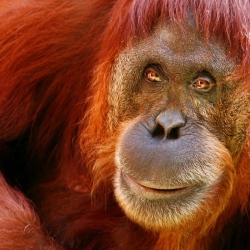
This study comes as a quite a shock to the life extension community. There have been thousands of studies across many species going back to the 1930s which show caloric restriction increases lifespan versus ad lib feeding. In fact this research and the myriad spin-off studies from it has prompted a significant body of humans to live a caloric restriction lifestyle.
However there has not been any long-term human controlled studies.
The new primate study published in Nature is the latest of two to test caloric restriction in the humans closest relative, the primate.
The study used Rhesus monkeys and began 25 years ago. The control group of 64 monkeys were allowed to eat as much as they wanted while the 57 monkeys in the caloric restriction group were fed 70% of the amount of calories needed for maintenance. The researchers were careful ensure adequate nutrition and to avoid feeding the control group too much sugar.
The study began with middle and older aged animals, normally having a maximum lifespan of 40 years.
The old onset monkeys who were calorically restricted lived no longer than the controls. Furthermore “neoplasia, cardiovascular disease, amyloidosis and general organism deterioration in the oldest animals were equally represented in both diet groups,” write the authors. It was found however than old-onset CR group appeared to have metabolic benefits even though survival wasn’t affected. Interestingly, there is currently one monkey over age 40 the control group still alive, and 4 monkeys over age 40 in the CR group.
The same thing was found for the young-onset CR experiment – no difference in survival from either diet, and currently less that 50% of the original group of animals survive. Though no survival difference is seen, the young-onset CR animals are healthier, and to date no cancer has been observed among them.
